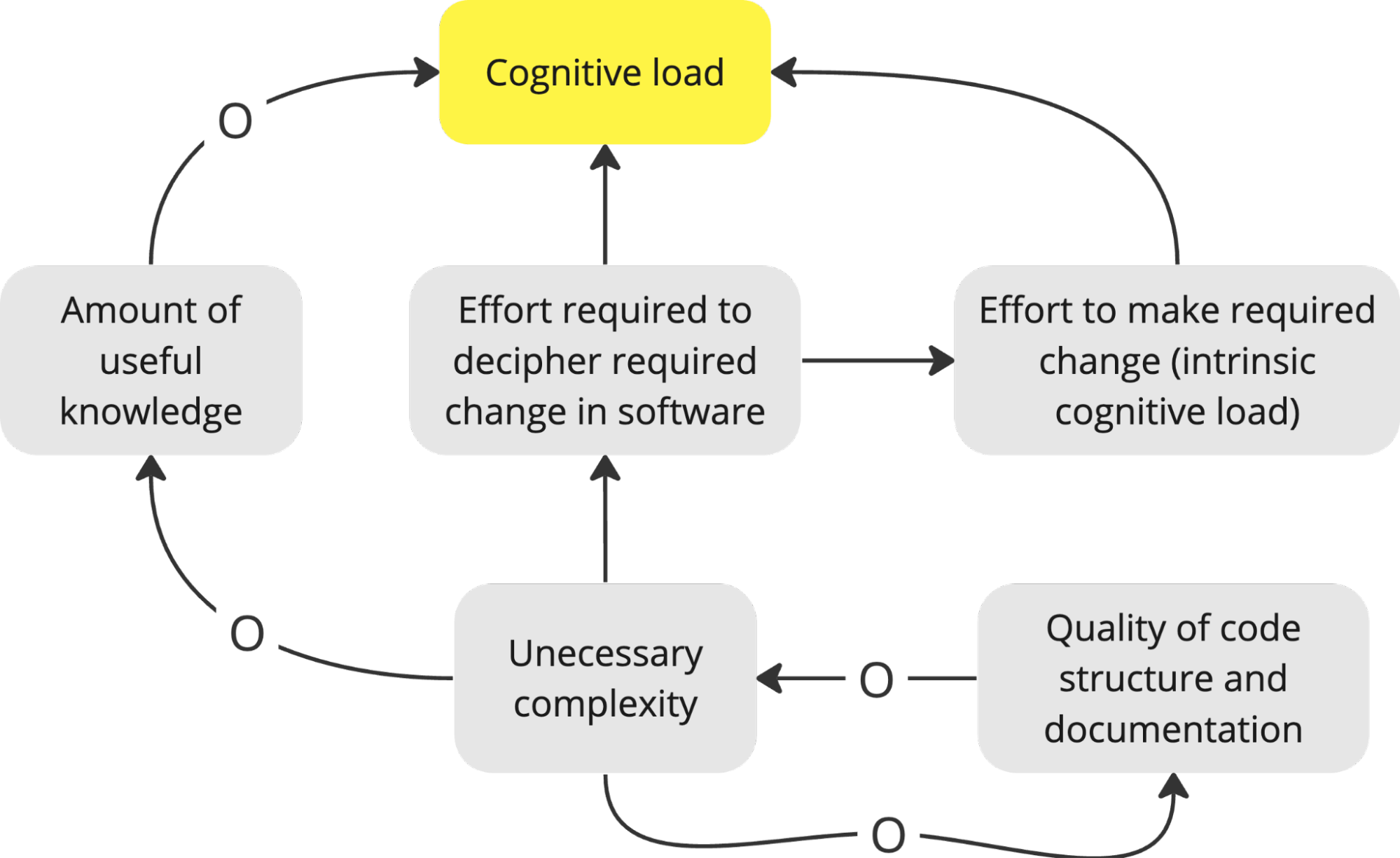The Importance of Cognitive Load
In software product development, cognitive load is intricately linked to the creation, maintenance, and application of knowledge. Essentially, the output of software development is the software product itself and the knowledge generated while creating and refining that product, which is needed for ongoing software maintenance.
When developers solve a problem by creating a feature that addresses a specific need, they generate new knowledge. If, for instance, a significant part of the source control system fails (consider a crash with no backups available) and developers are tasked with solving the same problem shortly after that, accessing the previously acquired knowledge significantly reduces the time and effort required to address the problem again. This efficiency is due to the retention of knowledge, which, although susceptible to Ebbinghaus’s forgetting curve, is mitigated by the frequent reuse and application of the knowledge.
Maintenance activities reinforce this concept. Developers who have previously worked on a particular piece of software and revisited it not too long after their initial work will find it much easier and less cognitively demanding to maintain or modify than new developers. The familiarity with the software reduces the cognitive load because the necessary knowledge has been retained and is easily accessible.
Understanding the types of cognitive load is crucial in software development:
-
Extraneous Cognitive Load: This is the effort required to decipher what needs to be changed in the software. Poorly structured or documented code can increase this load, making it harder for developers to understand what they need to do.
-
Intrinsic Cognitive Load: This refers to the effort required to make the change. The complexity of the change directly influences this type of load.
-
Germane Cognitive Load: This involves the effort used to create lasting knowledge or expertise from the development activities.
These types of cognitive load are interconnected, each influencing the overall cognitive demands placed on developers. High extraneous load can complicate understanding and increase intrinsic load while also hindering the development of germane knowledge. Conversely, reducing extraneous cognitive load through better documentation and clearer code can lower intrinsic load and foster the growth of valuable, lasting knowledge.

To effectively manage cognitive load in software product development, it’s essential to consider all these dimensions together. A holistic approach that reduces unnecessary complexity and encourages the retention and reuse of knowledge enhances efficiency and improves the overall quality of the software development process. Thus, managing cognitive load is not about isolating and addressing individual aspects but embracing and optimizing the full spectrum of cognitive demands to ensure a productive, sustainable development environment.
Next, we’ll explore cognitive load within the two different contexts given earlier:
Ending up with some guidelines to make it all work out for you.